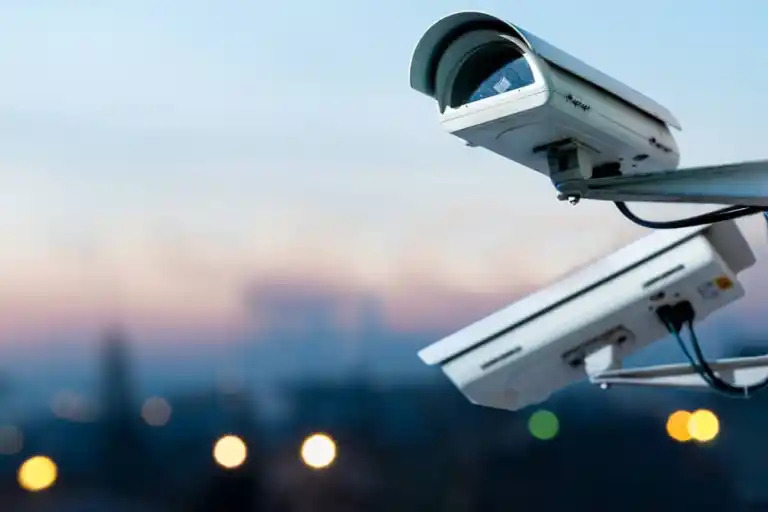In an era where technology is rapidly evolving, the traditional methods of security are also undergoing significant transformation. One of the most innovative advancements in the field is the rise of the remote security guard. This modern solution is revolutionizing how businesses and properties manage their security needs, providing a cost-effective and efficient alternative to traditional on-site guards.
What is a Remote Security Guard?
A remote security guard is a security professional who monitors and manages security systems from a remote location. Unlike conventional security guards who are physically present on-site, remote security guards use advanced technology, including surveillance cameras, motion detectors, and other digital tools, to oversee and protect a property. This approach allows for continuous monitoring without the need for a physical presence at the site.
How Remote Security Guards Work
Remote security guards operate through a network of cameras and sensors strategically placed around the property. These systems transmit real-time data to a central monitoring station where the security guard can observe and analyze the feed. Modern remote security solutions often include features such as:
- Live Video Surveillance: Guards can view live footage from multiple cameras simultaneously, ensuring comprehensive coverage of the premises.
- Motion Detection: Automated alerts are triggered if movement is detected in restricted areas, allowing for immediate response.
- Two-Way Communication: Remote guards can interact with individuals on-site via intercom systems or other communication tools, providing instructions or warnings as needed.
- Incident Reporting: Guards can document and report incidents in real-time, ensuring accurate records and timely responses.
Benefits of Remote Security Guards
- Cost-Effectiveness: Employing remote security guards can significantly reduce costs compared to traditional on-site guards. There’s no need for 24/7 physical presence, and fewer personnel are required to cover larger areas, leading to substantial savings.
- Enhanced Coverage: With the ability to monitor multiple locations from a single command center, remote security guards provide superior coverage. This is particularly beneficial for businesses with multiple sites or large properties.
- Quick Response Times: In case of an incident, remote security guards can quickly assess the situation and coordinate with emergency services or on-site personnel. The ability to respond promptly can prevent potential damage or loss.
- 24/7 Surveillance: Remote security systems allow for round-the-clock monitoring without the limitations of human fatigue. This ensures that security is maintained consistently, even during off-hours.
- Reduced Risk: By leveraging advanced technology, remote security guards can enhance overall security. Features like motion detection and automated alerts help in identifying and addressing potential threats before they escalate.
Applications of Remote Security Guards
Remote security guards are increasingly being adopted across various sectors, including:
- Commercial Properties: Offices, warehouses, and retail stores benefit from remote security through reduced costs and enhanced surveillance capabilities.
- Residential Communities: Gated communities and apartment complexes utilize remote security to ensure the safety of residents without the need for on-site security personnel.
- Industrial Sites: Factories and industrial facilities use remote guards to monitor operations and prevent unauthorized access.
- Educational Institutions: Schools and universities implement remote security to safeguard students and staff while managing large campuses effectively.
Challenges and Considerations
While remote security guards offer numerous advantages, there are challenges to consider:
- Technology Dependence: The effectiveness of remote security guards is heavily reliant on technology. System failures or technical issues can impact monitoring capabilities.
- Privacy Concerns: Continuous surveillance may raise privacy concerns among employees or residents. Clear policies and transparent practices are essential to address these issues.
- Integration with Existing Systems: Remote security solutions must be compatible with existing security infrastructure to ensure seamless operation.
The Future of Remote Security Guards
As technology continues to advance, the role of remote security guards is expected to evolve further. Innovations such as artificial intelligence and machine learning are likely to enhance the capabilities of remote security systems, providing even more sophisticated threat detection and response mechanisms. The integration of these technologies promises to make remote security guards an even more integral part of modern security strategies.
In conclusion, the rise of remote security guards represents a significant shift in how security is managed. By leveraging advanced technology and offering numerous benefits, remote security guards provide a modern solution for enhanced safety and efficiency. As businesses and property owners seek more cost-effective and comprehensive security measures, the adoption of remote security guards is set to become increasingly prevalent in the years to come.






Comments